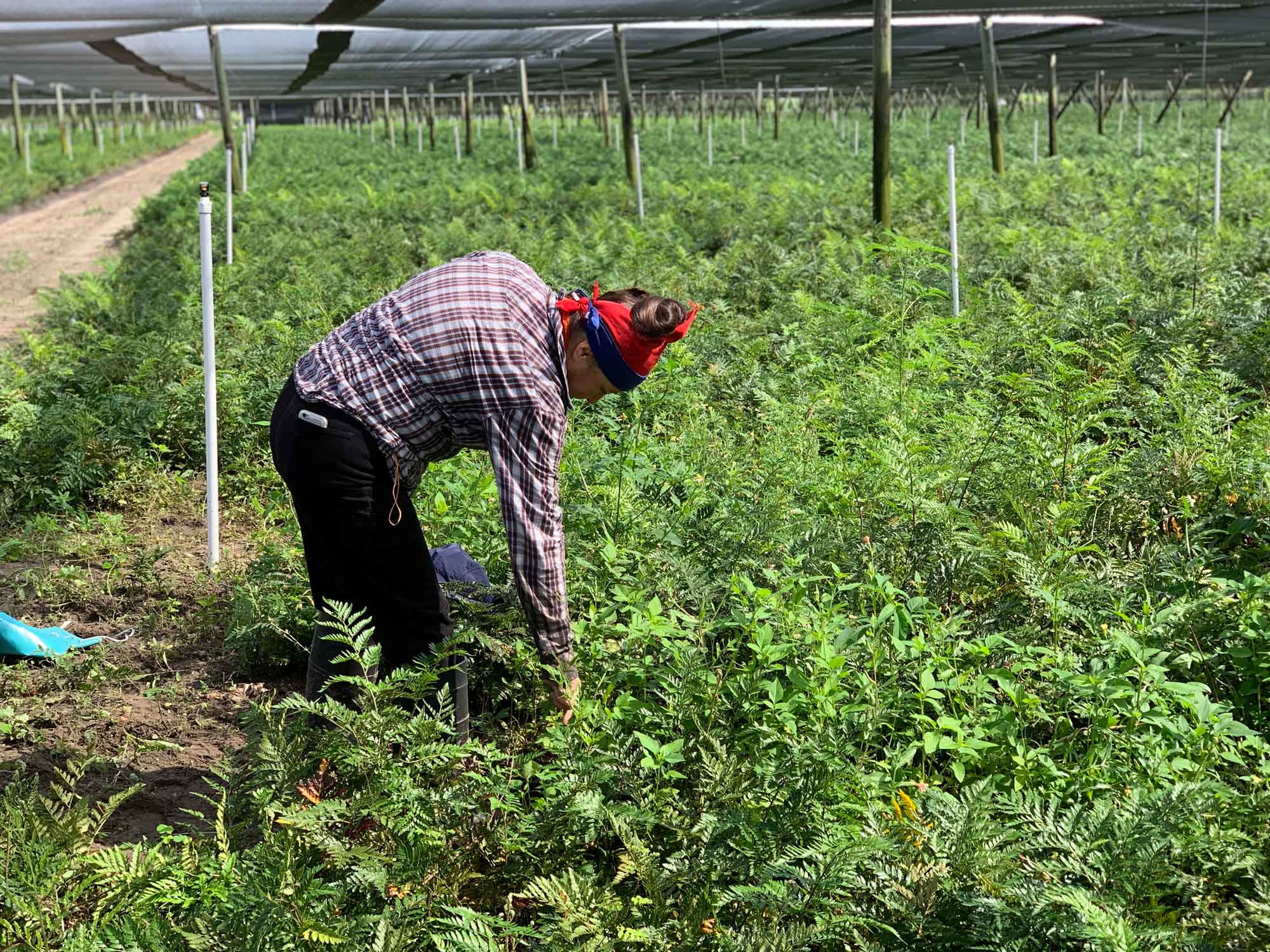
Community Ties
How the school works alongside community partners —
and prepares students to do the same
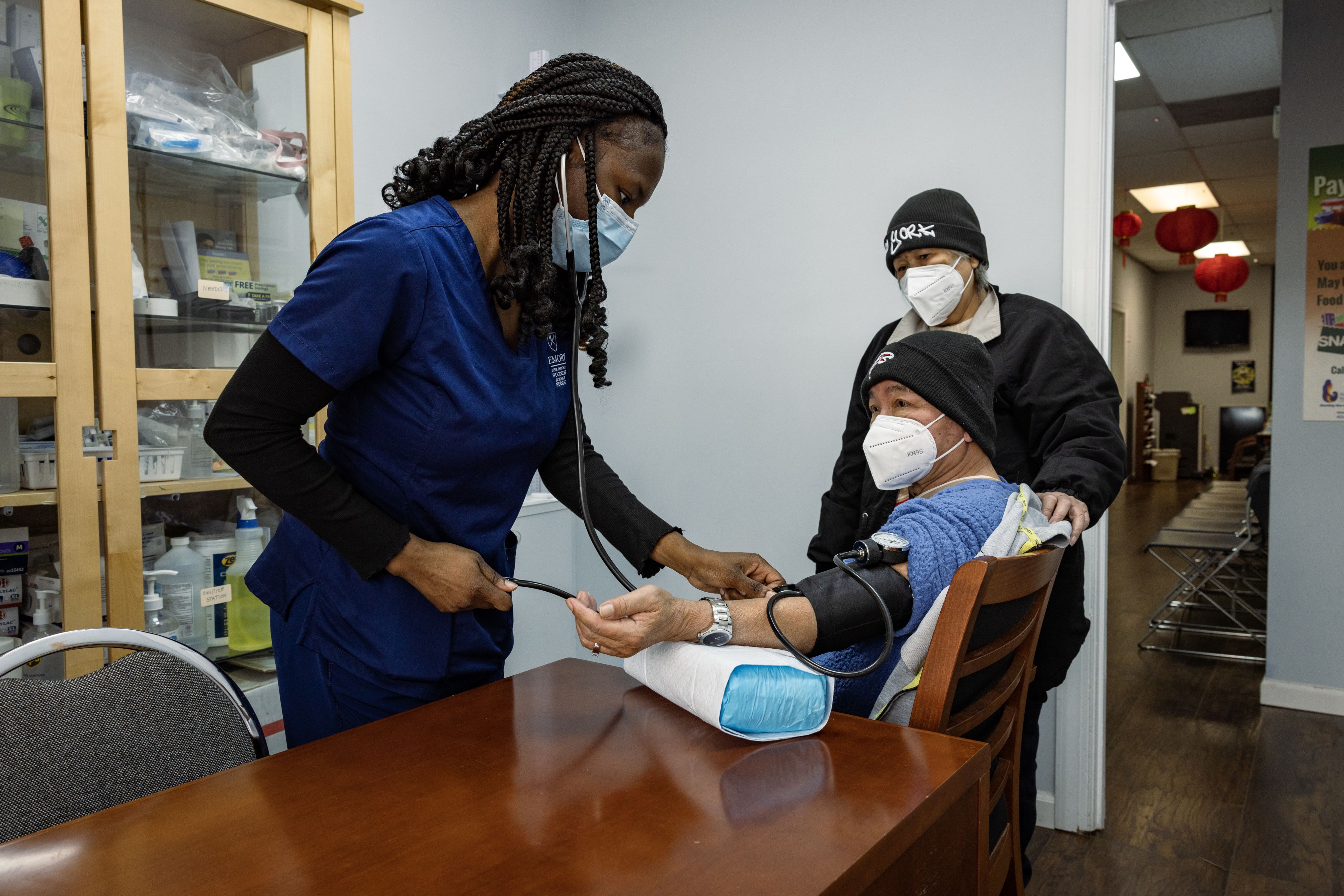
Quyen Phan's community ties run deep.
For more than 15 years, the School of Nursing assistant clinical professor has worked with the local branch of Boat People SOS (BPSOS), which provides citizenship, occupational, and other social services to Vietnamese and Asian populations in Atlanta. Eleven years ago, with input from the BPSOS community, she developed a free community clinic to serve low-income individuals from across the metro area.
Each semester, students from her population health course spend Saturdays at the weekly BPSOS clinic, providing health screenings, primary care, and vaccinations for adult and senior clients. Also, it is where the social determinants of each client’s health and the power of community partnerships come alive for students.
Phan’s connections to BPSOS and other community organizations proved especially valuable during the COVID-19 pandemic. At the time, BPSOS had a steady supply of COVID vaccines, Atlanta’s Mexican Consulate — where Emory nursing students also provide health screenings — had plenty of clients, and the School of Nursing had expertise in administering vaccines. As she worked alongside these groups, Phan saw a great opportunity.
“On a given day at the Mexican Consulate, we brought the three groups together,” says Phan 03MSN, DNP, APRN, FNP-BC. “Our nursing faculty and students served hundreds of clients. It was community partnership in its truest form.”
Community Engagement: Closing the Gap
In 2022, the School of Nursing received a record amount of federal funding to expand such initiatives. The U.S. Department of Health Resources and Services Administration (HRSA) awarded six grants totaling more than $15.4 million to support health care delivery and training programs. Phan plays a role in four of these projects and leads two of them.
“All of the HRSA grants will help us address the social determinants of health and health equity at the community level,” says Phan. “Often, when people are disenfranchised, they don’t get the care they deserve. As nurses, we need to be better prepared to close that gap.”
In recent years, “community engagement” has taken on greater significance as a defining principle of Emory University, one that Linda McCauley 79MN, PhD, RN, FAAN, FRCN, understands well as a public health nurse, environmental and occupational health researcher, and dean of the School of Nursing.
“The community is where much of care happens,” says McCauley. “As nurses, we have a responsibility to be part of the solution of making sure every individual has access to care. The funding from HRSA bolsters our efforts in preparing future nurse leaders to serve people in the communities where they live.”
Community engagement and the HRSA projects are part of the work of the nursing school’s Lillian Carter Center for Global Health & Social Responsibility (LCC). Established in 2001, the center aims to improve the health of vulnerable people worldwide through nursing education, research, practice, and policy.
“During its formative years, the LCC focused on strengthening the global nursing workforce and formalizing service-learning programs for students in Georgia and other countries,” says Tricia Benson 86MN, the School of Nursing’s chief engagement officer and executive director of the Lillian Carter Center.
“Today, the LCC’s work in community engagement, service learning, and global health is more deeply rooted than ever,” she continues. “Support from HRSA and other federal agencies is broadening the impact of the LCC’s work, especially in collaborative partnerships with Atlanta-area organizations. Our students will take this community-centered understanding, skill, and sensitivity forward to their future careers in nursing.”
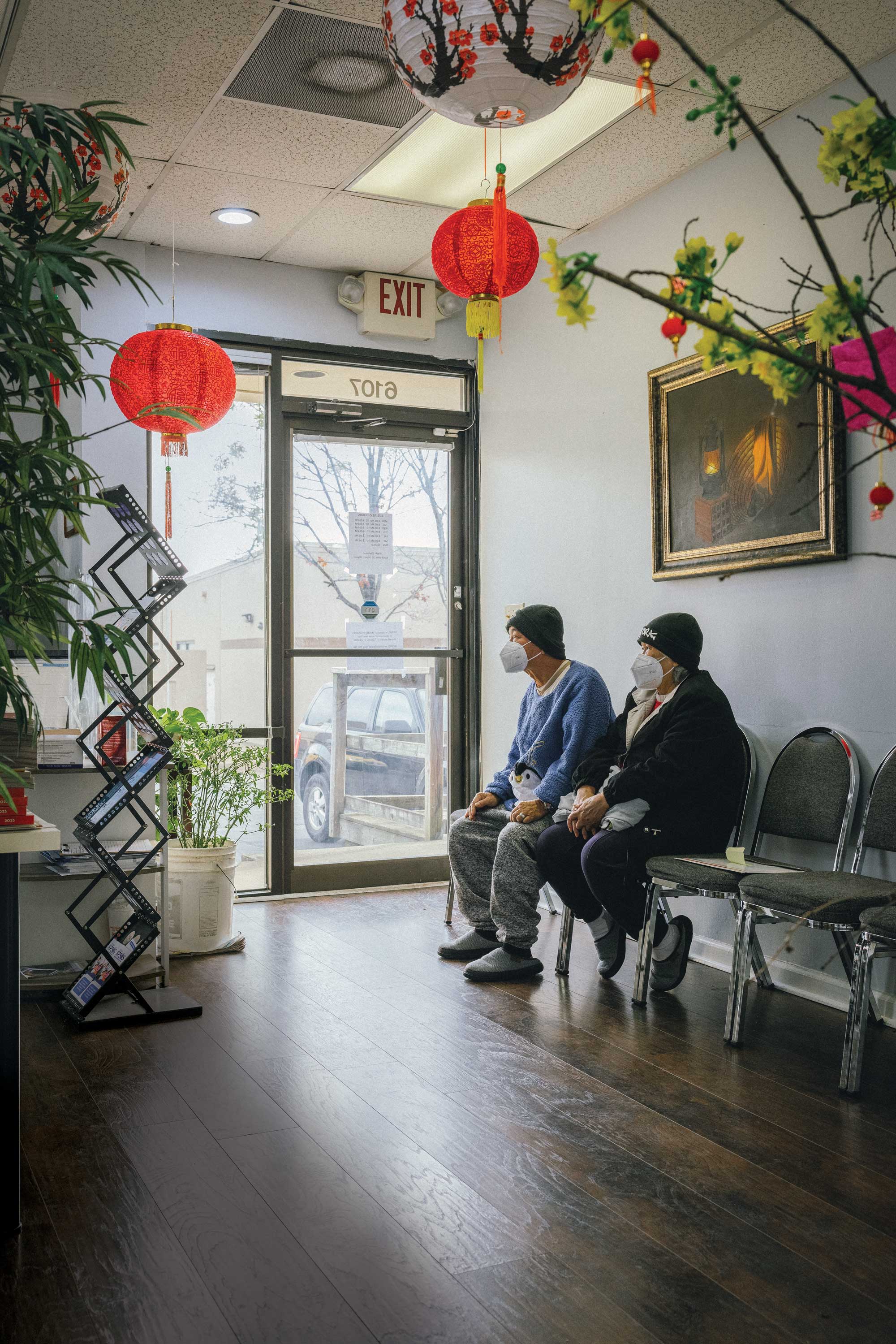
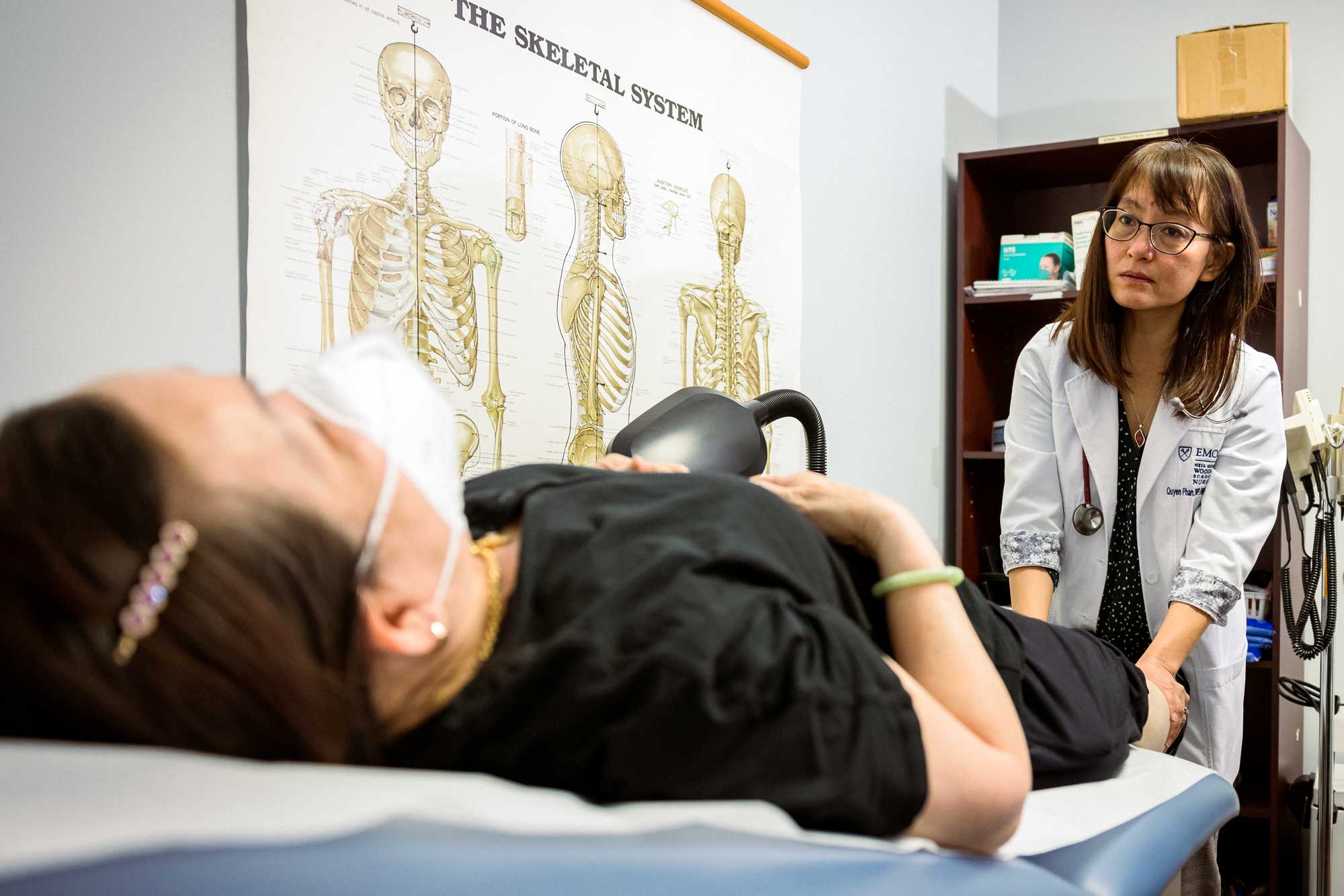
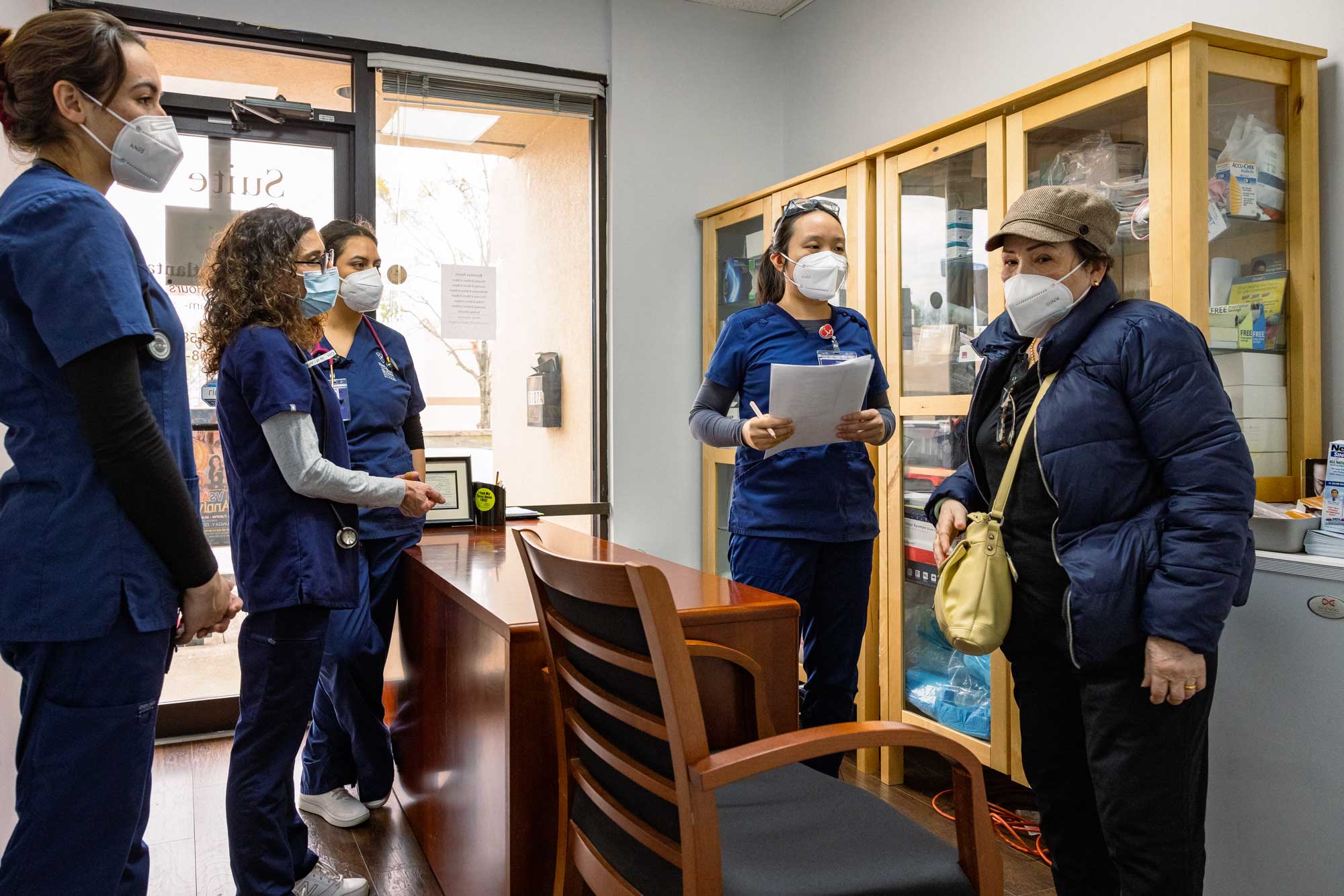
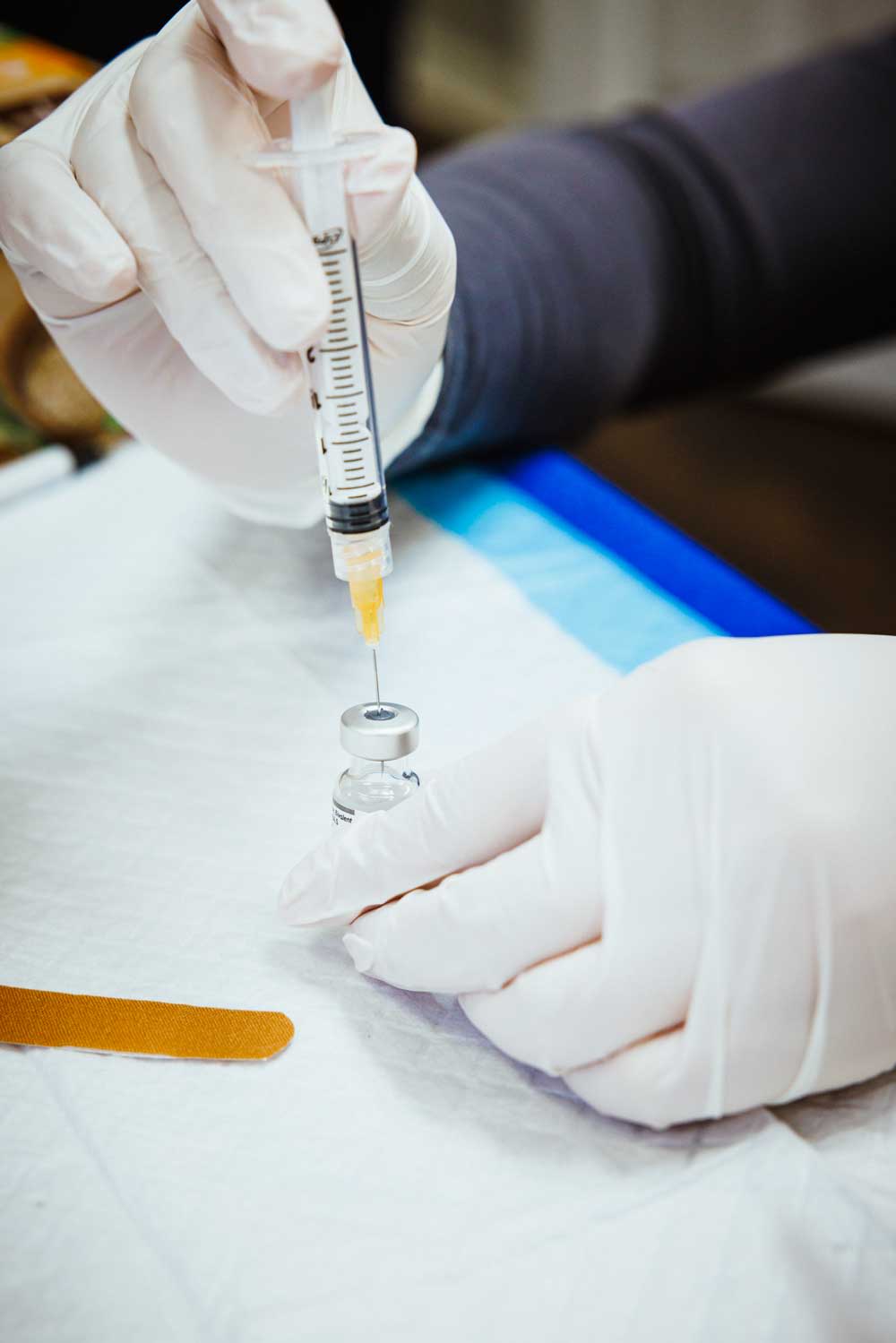
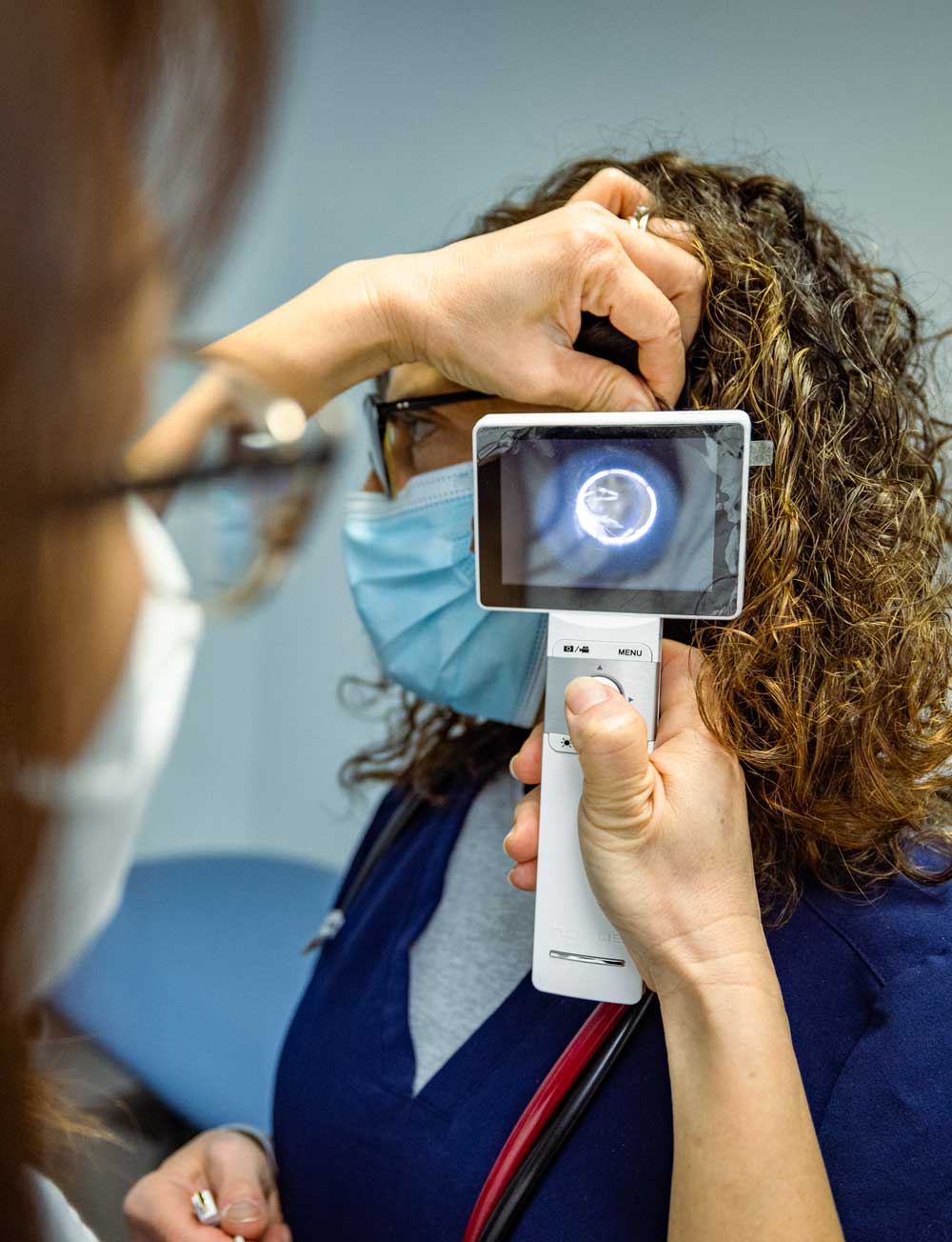
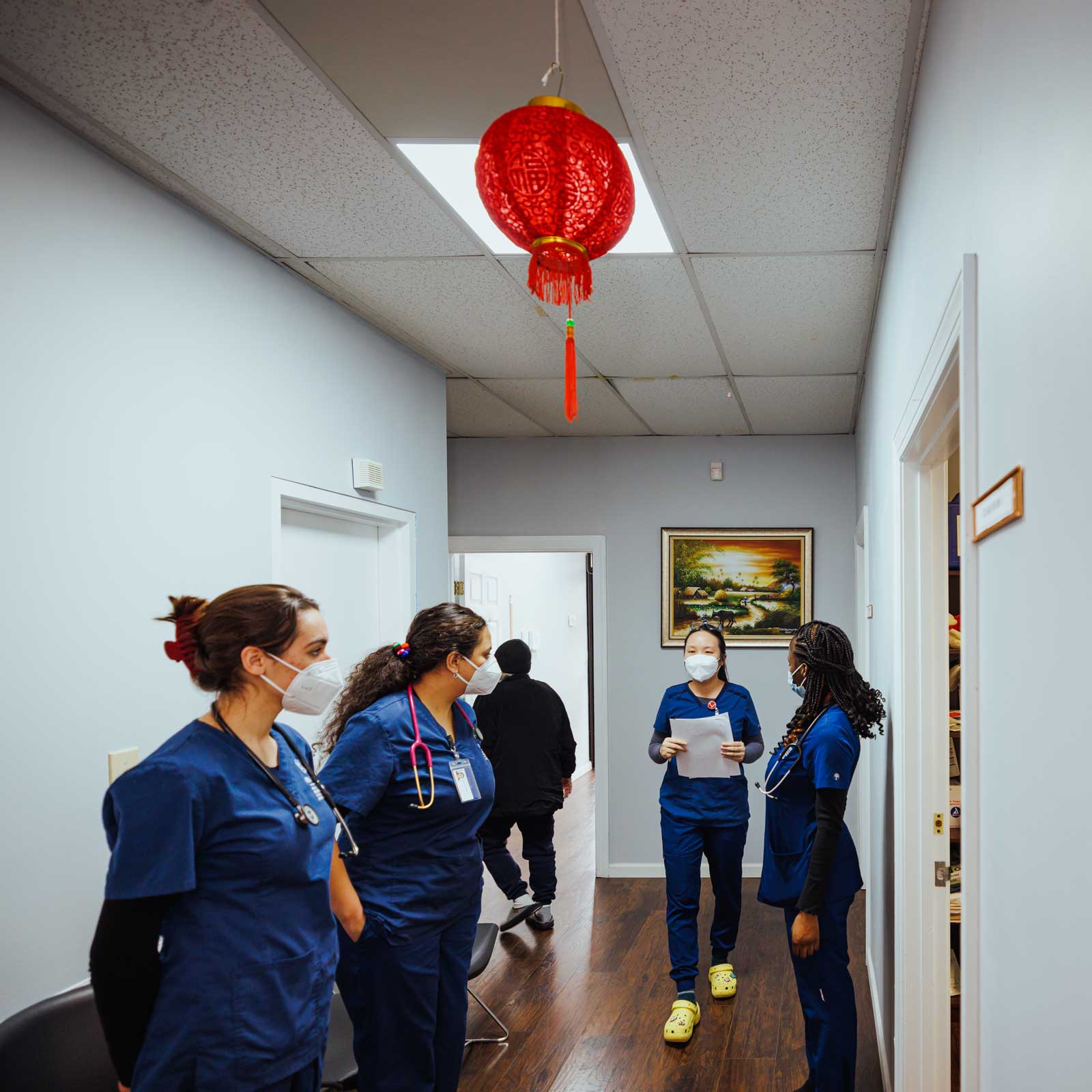
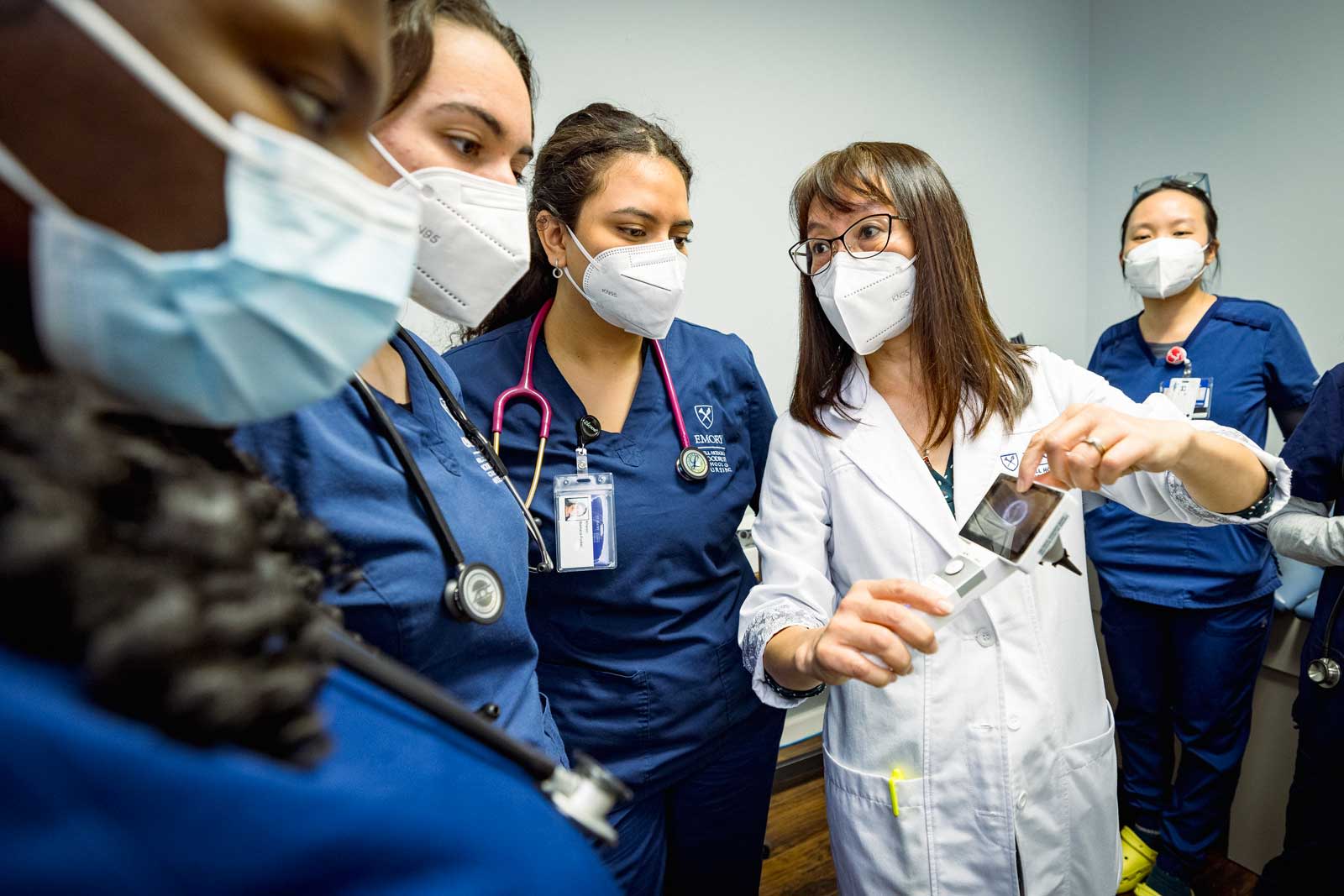

BSN students come to the Boat People SOS clinic to gain valuable experience caring for vulnerable patients.
BSN students come to the Boat People SOS clinic to gain valuable experience caring for vulnerable patients.



Clinic coordinator Crystal Ho 21BSN 23MSN (second from right) is among those who help oversee their work.
Clinic coordinator Crystal Ho 21BSN 23MSN (second from right) is among those who help oversee their work.

The clinic is where the social determinants of each client's health and the power of community partnerships come alive for students.
The clinic is where the social determinants of each client's health and the power of community partnerships come alive for students.
Community Collaborations: Working Alongside Our Partners
“We’ve always had partnerships with community agencies,” says Elizabeth Downes 04MPH, DNP, FNP-C, CNE, FAANP, ANEF, FAAN, assistant dean of global health and co-director of the LCC. “When the Lillian Carter Center was formed, we began to focus more on how to meet the needs of the communities we’re serving. Community impact and creating meaningful change are the bases of our program.”
Students and faculty collaborate with longtime partners to provide clinical care and health education in metro Atlanta and other parts of Georgia, as well as the Bahamas, Haiti, the Dominican Republic, Jamaica, Peru, and other countries. For more than 20 years, students, faculty, and alumni have spent two weeks in South Georgia providing health care for migrant farmworkers and families in collaboration with the Georgia Ellenton Farmworker Health Clinic and health professions students from other Georgia colleges and universities.
Nursing students are drawn to Emory because of these experiences. Among them are the Fuld Service Learning Fellows, MN+MSN pathway students who plan to work with underserved populations. The Fuld Fellowship was established through a gift to the School of Nursing from the Helene Fuld Health Trust.
The Helene Fuld Health Trust: Over 20 Years of Gratitude
With a mission to support the health, welfare, and education of student nurses, the Helene Fuld Health Trust is the nation’s largest private funder devoted to nursing students and nursing education.
In 1935, Dr. Leonhard Felix Fuld and his sister, Florentine, created a foundation in honor of their mother, Helene Shwab Fuld, who died in 1923. During her lifetime, Helene Fuld was passionately interested in health issues, and the foundation named for her was originally dedicated to the “relief of poverty, suffering, sickness, and distress.” In 1961, Dr. Fuld limited the foundation’s focus to “the improvement of the health and welfare of student nurses.”
The School of Nursing is grateful to the Helene Fuld Health Trust for the gifts of over $12 million to fund the Fuld Service Learning Fellowship, the Fuld Fellowship Program in Palliative Care, and additional scholarships for Master of Nursing students.
The school’s first gift from the Helene Fuld Health Trust was in 2002. Over the past 20 years, more than 100 students have benefited from tuition support provided by the trust.
Fuld Fellowships
Nurturing student interest in social responsibility
Heather Allstrom 22MN 24DNP had no ties to Emory University. She grew up a thousand miles away in Rhode Island, earned her undergraduate degree from the University of Connecticut, and volunteered with AmeriCorps at a shelter for pregnant and parenting women in Tempe, Arizona.
But when she decided to go to nursing school and started researching the possibilities, the Nell Hodgson Woodruff School of Nursing jumped to the top of her list.
“It has such an amazing name and reputation, and you can tell just from the website how much the school stands for community service,” she says.
The clincher in her decision to come to Emory: a fellowship that paid half of her tuition.
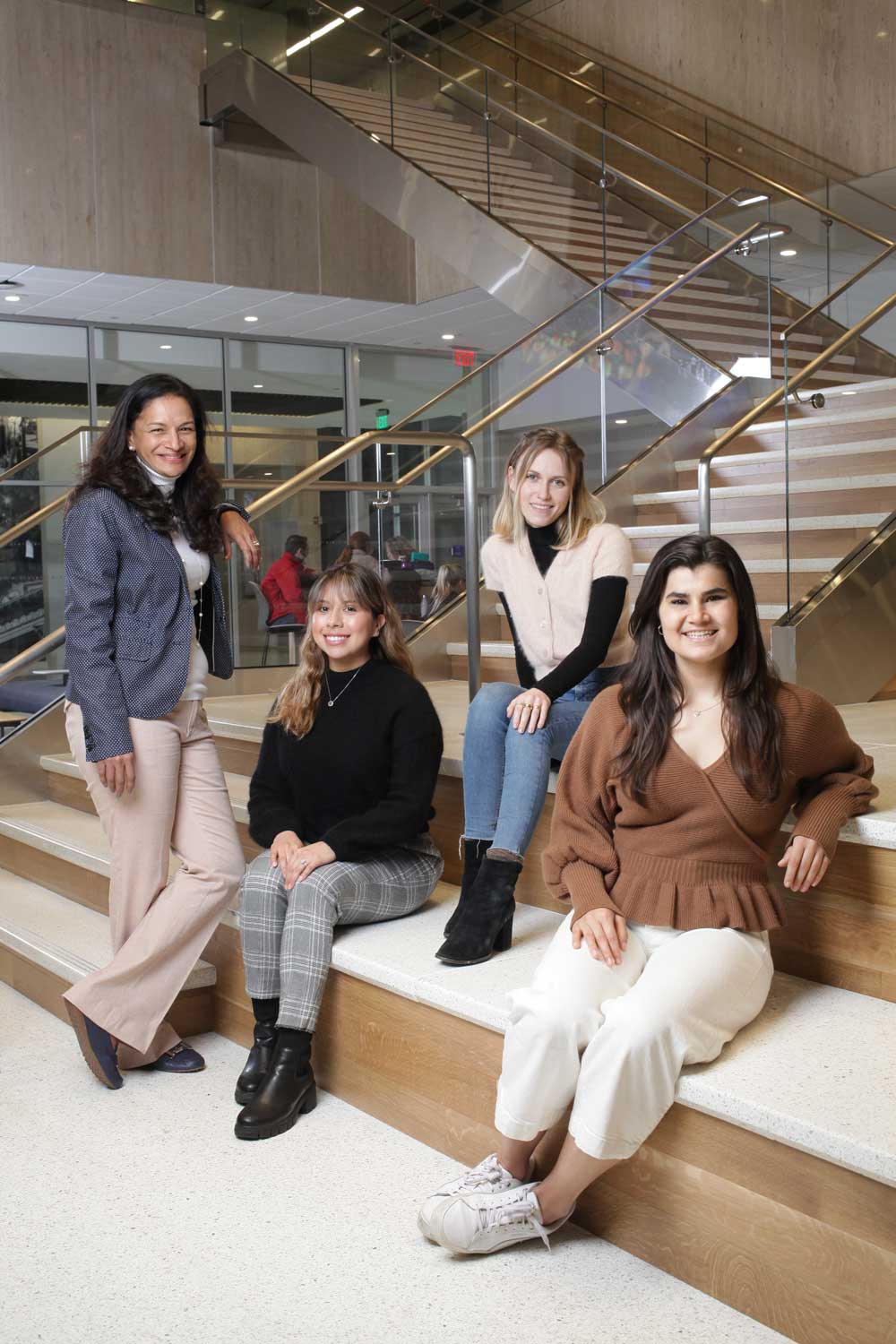
Currently, the school has three Fuld Service Learning Fellows: Guadalupe Castaneda (second from left), Leah Bercovitch, and Heather Allstrom. Lalita Kaligotla (left) oversees the Fuld Fellowships.
Currently, the school has three Fuld Service Learning Fellows: Guadalupe Castaneda (second from left), Leah Bercovitch, and Heather Allstrom. Lalita Kaligotla (left) oversees the Fuld Fellowships.
Allstrom was awarded a Fuld Service Learning Fellowship, a program that supports MN+MSN pathway students with a special interest in underserved communities. She’s a work-study student in the Lillian Carter Center, which houses the fellowships, and volunteers as a nurse with Community Advanced Practice Nurses, helping to staff a free walk-in clinic at an Atlanta homeless shelter.
“We select students who are interested in community engagement and social responsibility,” says Lalita Kaligotla, MSW, MBA, who oversees the Fuld Fellowships as senior director of leadership and engagement at the School of Nursing. “The whole idea is to have a broader role in providing health care to underserved populations.”
The fellowships started in 2002 with a grant from the Helene Fuld Health Trust. In Allstrom’s case, the fellowship supported her accelerated master’s degree, which she earned in 2022. She’s now pursuing her doctorate in nursing practice and expects to graduate in 2024 as a women’s health and gender-related nurse practitioner.
There are two Fuld Fellows in addition to Allstrom: Leah Bercovitch 23MN, who works on issues of food insecurity among children with Strong4Life, an initiative at Children’s Healthcare of Atlanta; and Guadalupe Castaneda 23MN, who works with Latino Community Fund Georgia to provide health screening and health education to community members.
Fuld Fellows have gone on to do everything from working as nurse practitioners to leading community service organizations.
Allstrom would be happy to follow a similar path. After completing her DNP, she hopes to continue her work in free walk-in clinics. — Jim Auchmutey

Jacob Kariuki
A new leader forges a new path for global health research
As a young nurse in Kenya, Jacob Kariuki, PhD, discovered the revelatory power of data collection and analysis — and the value of global perspectives to better understand health issues.
That background will serve him well in his new role as assistant director for global health research with the Lillian Carter Center for Global Health & Social Responsibility (LCC), where he will drive innovation and develop partnerships, primarily in Africa.
Before joining the LCC, Kariuki knew about its global health success, such as reducing household air pollution from cookstoves in Guatemala and strengthening the nursing workforce infrastructure and data collection in Kenya. He was particularly drawn to the School of Nursing’s Emory-Ethiopia Partnership, which includes a successful initiative to improve maternal-child health using simple, low- or no-cost measures in remote communities. The same partnership gave rise to Ethiopia’s first nursing PhD program, and “could become the North Star of the center’s engagement with the African continent,” he says.
Kariuki sees potential for growing research in a variety of ways. For example, the LCC’s International Visiting Scholars Program attracts health professionals from across the globe. These scholars, he believes, could foster new research collaborations.
“I’ve long admired the Lillian Carter Center’s work in global health, service learning, and community empowerment,” says Kariuki. “When Dean McCauley described the center’s plans to strengthen global health research, I knew immediately I wanted to play a part.” — Sylvia Wrobel
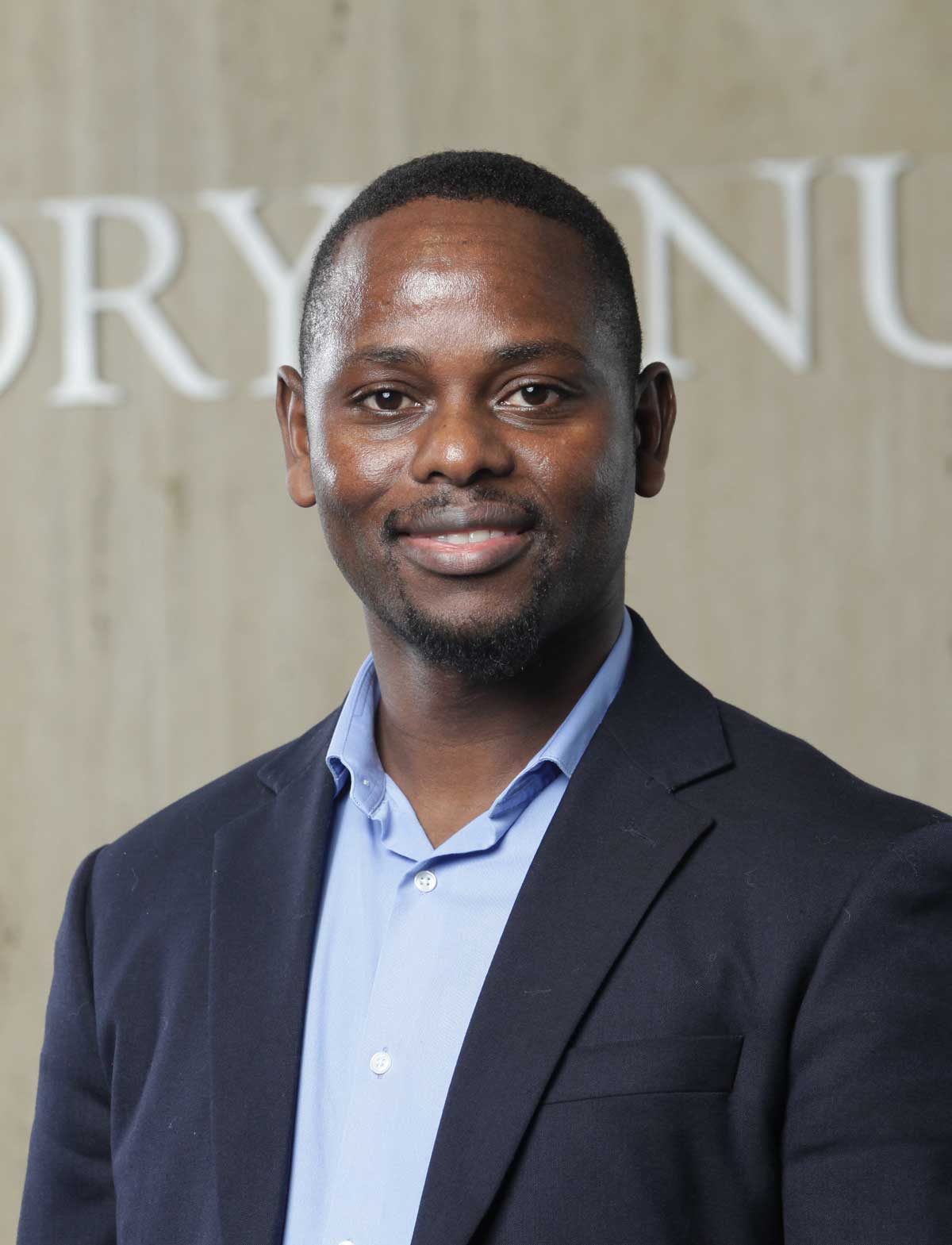
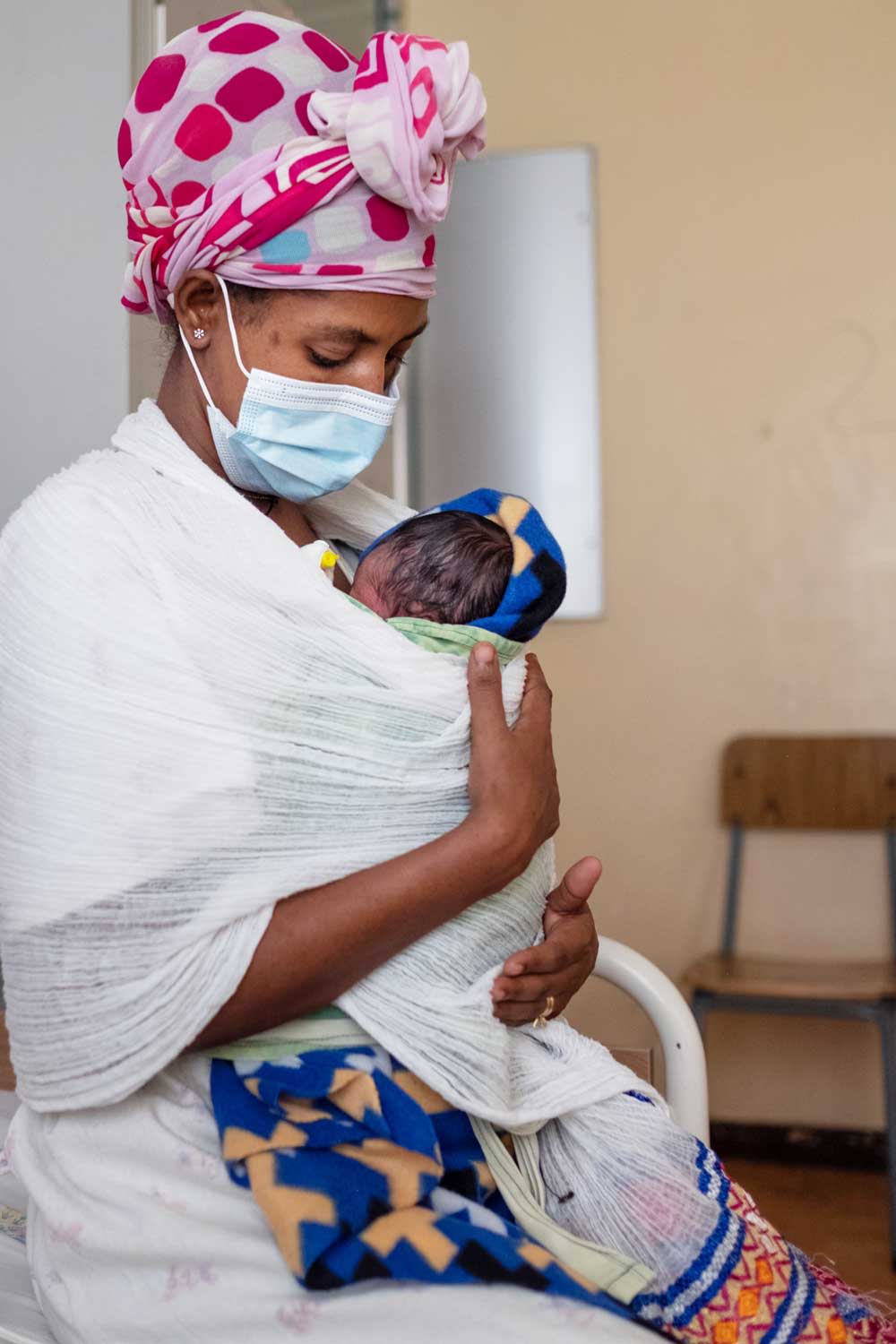
Newborn health initiatives are part of the Emory-Ethiopia Partnership, which Kariuki believes could be a good model for the Lillian Carter Center’s work in Africa.
Newborn health initiatives are part of the Emory-Ethiopia Partnership, which Kariuki believes could be a good model for the Lillian Carter Center’s work in Africa.
Community Understanding: Social Determinants of Health
At the School of Nursing, students learn about the social determinants of health in every course they take, based on goals set by the Association of American Colleges of Nursing, the U.S. Department of Health and Human Services, and other agencies.
“It’s important that we fully embrace the social determinants of health so that we provide the best care to our patient populations,” says Professor Jill Hamilton 21MRPL, PhD, RN, FAAN, FAACE, co-editor of the new textbook, Integrating a Social Determinants of Health Framework into Nursing Education.
This focus on social determinants has played a big role in the school's community-engaged initiatives, the funding of which has grown substantially in recent years. In addition to HRSA funding, the school received a record $23 million in federal funding from the National Institutes of Health and the Department of Health and Human Services. Research projects include preventing heat-related illnesses among farmworkers and reducing children’s environmental health risks.
“Community engagement work takes place in different ways, and scholarship is an important part of that work,” says McCauley. “To do meaningful research on the social determinants of health, you have to partner with communities where people work and live. Federal agencies understand that. Funding this type of research is an investment in health equity. It helps people who need it most.”
Community Focus: Our Global, Local Responsibility
Going forward, the nursing school’s roots in community engagement will continue to spread. The school’s new Emory Nursing Learning Center is helping the school expand its community partnerships, locally and globally.
The center, which houses the school’s clinical skills and simulation labs, opened last August in a city brimming with learning and service opportunities.
“When you walk out the doors of the Emory Nursing Learning Center, you’re in the heart of the community,” says Benson. “The learning center allows us to partner and engage in Fulton and DeKalb counties in deep and meaningful ways.”
Whether the work is in Decatur — or other parts of the city, state, nation, or world — the nursing school is embracing the reality that health care and community care go hand in hand.
